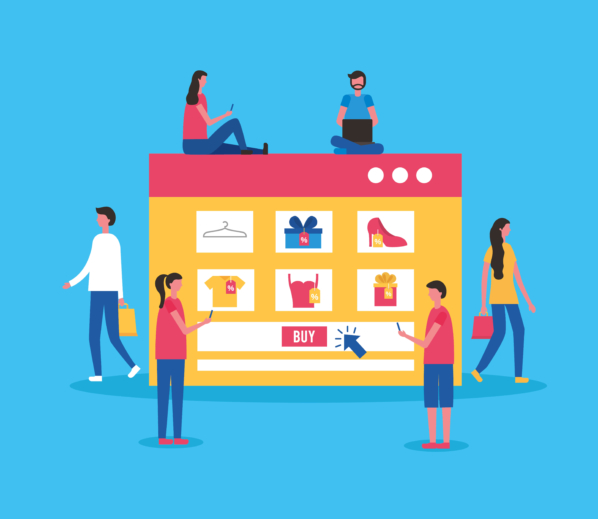Greetings! I'm Aneesh Sreedharan, CEO of 2Hats Logic Solutions. At 2Hats Logic Solutions, we are dedicated to providing technical expertise and resolving your concerns in the world of technology. Our blog page serves as a resource where we share insights and experiences, offering valuable perspectives on your queries.

QUICK SUMMARY
Looking for the perfect Shopify product filter solution? Our top recommendation for 2025 is Boost Product Filter & Search for its outstanding balance of AI-powered features and user-friendly implementation. Budget-conscious stores should consider Smart Search & Filter, while enterprise merchants will benefit from Findify’s advanced personalization. For the quickest setup, Product Filter & Search offers intuitive drag-and-drop functionality, while developers building headless experiences will appreciate Algolia’s flexibility. The newest contender, AJAI Search & Discovery, brings conversational filtering to the table, and Filter Bear stands out for its visual customization options.
Three seconds.
That’s how long the average shopper spends looking for a product before deciding whether to keep browsing or go to a competitor.
In an era of endless options and shrinking attention spans, your Shopify store’s filtering system isn’t just a feature, it’s the difference between capturing revenue and watching it walk out the digital door.
At 2HatsLogic, we’ve built our reputation on solving exactly this challenge for Shopify merchants. After analyzing the performance of dozens of filtering solutions across hundreds of stores, we’ve distilled our findings into this definitive guide for 2025.
Best Shopify Product Filter Apps in 2025
| App Name | Best For | Starting Price | Key Feature |
| Boost Product Filter & Search | Overall Performance | $29/month | AI-powered search predictions |
| Smart Search & Filter | Budget-conscious | $9.99/month | Clean UI with infinite scrolling |
| Findify | Enterprise Stores | $99/month | Advanced personalization |
| Product Filter & Search | Ease of Use | $19/month | Drag-and-drop filter builder |
| Algolia Search & Discovery | Developer Flexibility | $39/month | Headless implementation |
| AJAI Search & Discovery | AI Capabilities | $49/month | Intent-based filtering |
| Filter Bear | Visual Customization | $14.99/month | Visual filter builder |
1. Boost Product Filter & Search
Best For: Overall Performance and Conversion Rate Optimization
If you’re looking for the gold standard in Shopify filtering, Boost Product Filter & Search should be your first stop. This powerhouse has become my go-to recommendation for most clients in 2025.
What sets Boost apart is its perfect balance of powerful features and user-friendly implementation. You don’t need to be a tech genius to set it up, but developers will appreciate its flexibility.
Key Features:
- AI-powered search predictions that learn from your customers’ behavior
- Mobile-optimized filter interface that doesn’t crowd small screens
- Real-time filtering without page reloads (a huge win for user experience)
- Filter by product tags, collections, variants, price, and more
- Visual swatch filters for colors and patterns
Pro Tip: Don’t overwhelm customers with too many filter options at once. Start with the 3-5 most important attributes for your products (usually size, color, price, and category) and add more based on customer feedback.
2. Smart Search & Filter
Best For: Budget-conscious stores that need core filtering functionality
Not every store needs all the bells and whistles. If you’re on a tighter budget but still want professional filtering capabilities, Smart Search & Filter delivers exceptional value.
Key Features:
- Clean, minimalist filter interface that works with most themes
- Infinite scrolling option that reduces page load times
- Basic analytics to track which filters customers use most
- Filter by product variants, collections, price, and vendor
- Recently viewed products section
When we implemented Smart Search & Filter for a homeware store with over 2,000 products, their customers immediately found it easier to narrow down options by material, price range, and room category.
3. Findify
Best For: Enterprise-level stores with large product catalogs
Findify offers enterprise-grade filtering with powerful personalization capabilities for larger Shopify Plus stores with extensive catalogs.
Key Features:
- AI-powered personalized search and filtering
- Merchandising controls to promote specific products
- Advanced analytics dashboard
- A/B testing capabilities for filter layouts
- Multi-language support
4. Product Filter & Search
Best For: Ease of use and quick implementation
If you want something you can set up yourself in an afternoon, Product Filter & Search offers the most intuitive interface on this list.
Key Features:
- Drag-and-drop filter builder
- Quick setup with automatic product attribute detection
- Filter by any product metadata, including custom fields
- Responsive design that adapts to any theme
- Clear visual indicators for applied filters
5. Algolia Search & Discovery
Best For: Developer flexibility and headless commerce implementations
As someone who specializes in headless commerce, I can’t make this list without including Algolia. While it requires more technical setup than other options, it offers unmatched flexibility for custom implementations.
Key Features:
- API-first approach for complete customization
- Lightning-fast search and filtering (we’re talking milliseconds)
- Typo tolerance and natural language processing
- Complete control over the user interface
- Works seamlessly with headless Shopify setups
Success Story:
For a client building a custom headless Shopify experience using Next.js, we implemented Algolia’s filtering system. The result was a 40% faster browsing experience and a 17% reduction in bounce rate.
Warning: Algolia requires developer resources to implement properly. If you don’t have technical help, consider one of the more plug-and-play options on this list.
6. AJAI Search & Discovery
Best For: AI-powered intent understanding
New to the scene in 2025, AJAI brings conversational AI to product filtering. This app understands customer intent beyond just keywords.
Key Features:
- Natural language filtering (e.g., “show me red dresses under $100”)
- Intent-based filtering that understands context
- Automatic synonym detection
- Visual search capabilities
- Continuous learning from customer interactions
Pro Tip: When implementing AI-powered filters, start by reviewing your most common customer service questions. These often reveal the filtering needs your customers have that aren’t being met by traditional category navigation.
7. Filter Bear
Best For: Visual customization and brand consistency
Filter Bear stands out for its highly customizable visual interface that can be styled to match your brand perfectly.
Key Features:
- Visual filter builder with brand-matching capabilities
- Custom CSS control for perfect theme integration
- Mobile-first design approach
- Filter history for customers to revisit previous searches
- Horizontal or vertical filter layout options
Not sure which solution is right for your store?
How to Choose the Right Product Filter App for Your Shopify Store
Feeling overwhelmed by the options? Let we help you narrow it down:
- Consider your catalog size: For stores with under 500 products, simpler solutions like Smart Search & Filter or Product Filter & Search will work great. Larger catalogs benefit from Boost or Findify’s more robust capabilities.
- Evaluate your technical resources: Do you have developer help? If not, avoid Algolia and focus on no-code options like Filter Bear or Product Filter & Search.
- Identify your key filter needs: Make a list of the most important product attributes your customers need to filter by. Ensure the app you choose supports all of them natively.
- Check mobile performance: Test any app you’re considering on mobile devices. Over 70% of Shopify traffic comes from mobile, so this isn’t optional!
- Consider your budget: While it’s tempting to go for the cheapest option, remember that even a small increase in conversion rate can pay for a premium filter app many times over.
Want to See These Filters in Action?
Implementing Product Filters: Best Practices
After implementing dozens of filtering solutions, I’ve learned some key lessons:
DO:
- Place filters prominently at the top or left side of collection pages
- Include a “clear all filters” option
- Show the number of results for each filter option
- Remember to optimize for mobile users
- A/B test different filter layouts to see what works best
DON’T:
- Overwhelm customers with too many filter options
- Hide filters behind multiple clicks
- Force page reloads when applying filters
- Use technical jargon in filter labels
- Forget to include price filtering (it’s consistently one of the most-used filters)
The Bottom Line: Transform Your Shopping Experience
Remember that even the best app requires thoughtful implementation. Take time to understand which product attributes matter most to your customers, and make those the focus of your filtering strategy.
At 2HatsLogic, we’ve seen firsthand how the right filtering solution can transform a struggling store into a conversion machine. Whether you’re looking to implement one of these apps or need help building a custom headless commerce solution with advanced filtering capabilities, we’re here to help.
FAQ
Will product filter apps slow down my Shopify store?
Most modern filter apps use AJAX to load results without refreshing the page, so they actually make browsing faster. However, poorly implemented apps can cause slowdowns. Look for apps that mention "real-time filtering" or "no page reload" in their features.
Will these apps work with my custom theme?
Generally yes, but compatibility can vary. Most reputable filter apps are tested with popular themes and offer support for custom themes. Check the app's reviews or contact their support team if you're concerned about compatibility with a specific theme.
What's the difference between filtering and searching?
Searching is active (customers type what they want), while filtering is passive (customers select from predefined options). Most apps on this list combine both functionalities because they complement each other perfectly.
Can I customize the appearance of filter options?
Yes, all the apps on this list offer some degree of customization. Filter Bear and Boost offer the most visual customization options without requiring CSS knowledge.

Related Articles







